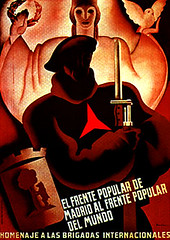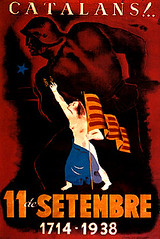is
this one from the NY times. Essentially: violence, against U.S. troops, is getting much worse. Specifically, in July 2625 roadside bombs were laid (and 1666 exploded); in January of this year, only 1450. This is up to almost 100 a day. 518 U.S. troops wounded in July, compared to 287 in January.
These facts rebound back, for me, to any number of military and political statements over the last two years that justified increased U.S. aggression on the grounds that it would decrease insurgent capacities. Such statements -- like the raft of comments about WMD -- are now proven not just ideologically but empirically wrong.
How will the right-wing or the media get its head around these facts? What *possible* strategy is left in the face of ied attacks nearly doubling in six monthes? Particularly in the context of increasing "sectarian clashes" which, as the NY times puts it, "have killed an average of more than 100 Iraqi civilians
per day over the past two monthes."
Even before these latest reports were released (the Times artice is based on a nine page classified Aug 3 report entitled "Iraq Update"), the rhetoric of a right-wing hawk like
Richard Lowry was already getting pretty damn wobbly. "Bush would be much better served by forthrightly acknowledging Iraq’s distressing circumstances and backing an all-out push to secure Baghdad even if it takes thousands more American troops in the country. . . . It is not too late to tamp down that militia-directed violence, which hasn’t yet taken on an uncontrollable life of its own." If Lowry is reduced, in the second sentence, to this rather extreme standard -- not just that violence has taken on a "life of its own" but "an
uncontrollable lifeof its own," the first sentence is, conversely, strikingly restrained: with between 120-130 thousand troops in Iraq for 3 years, will adding thousands more really constitute "an all-out push to secure Baghdad?" And what would happen after this "all-out push" Rick? -- since (to mention the obvious) we wouldn't have anything left if it were all-out.

